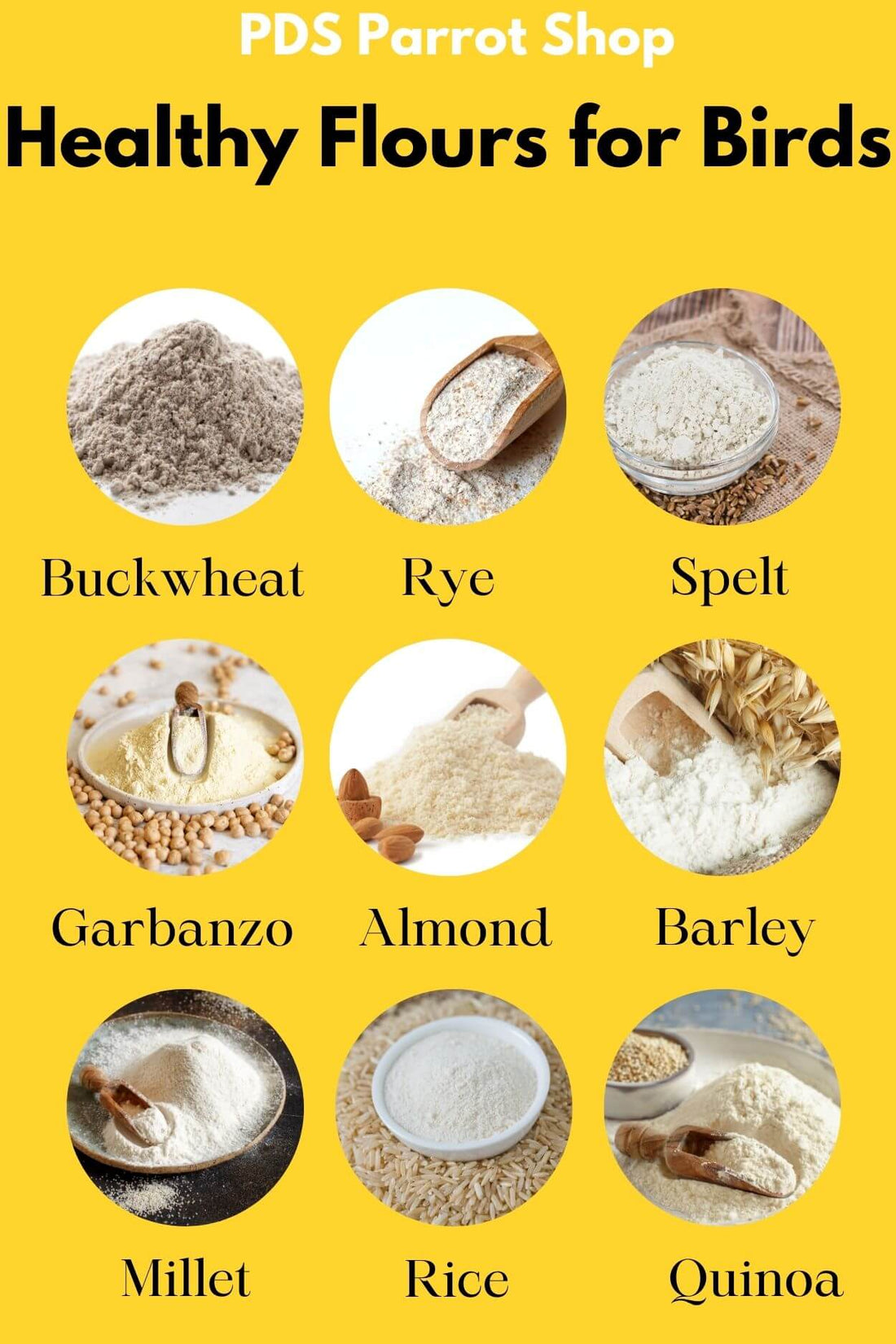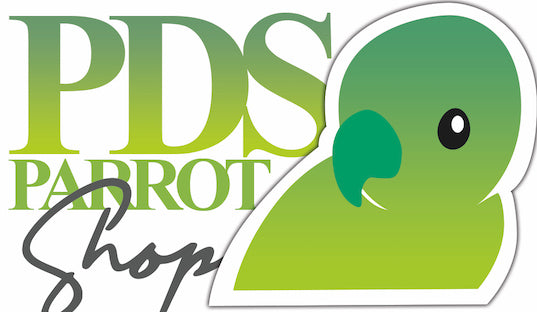
Flours for Birds: A Guide to Nutritious Baking Ingredients
Share
Choosing the right flour is key to creating healthy and delicious homemade treats for your parrot. Unlike processed white flour, bird-safe flours offer natural nutrients, fiber, and flavor that can enhance your bird’s diet. As the author of The Science of Avian Nutrition, I understand that making bird bread at home is a wonderful way to provide your parrot with fresher, more nutritious meals tailored to their needs. From classic grains like oats and spelt to protein-rich options like buckwheat and quinoa, the right flour mix can transform birdie bread into a powerhouse of nutrition.

Best Flours for Birds
1. Buckwheat Flour
Despite its name, buckwheat isn’t wheat—it's a seed! Rich in protein, fiber, and antioxidants, buckwheat flour is an excellent gluten-free option for baking bird treats. It’s also packed with rutin, a plant compound that supports circulation and reduces inflammation.
2. Rye Flour
Rye flour is a great source of dietary fiber, helping to promote digestive health. It also contains essential minerals like magnesium and phosphorus, making it a wholesome addition to your bird’s baked goods. Use it sparingly, as its strong
flavor can overpower some recipes.
3. Spelt Flour
Spelt is an ancient grain that is easier to digest than modern wheat. Its mild nutty flavor and rich nutrient profile—including magnesium, zinc, and iron—make it a wonderful choice for bird-friendly recipes.
4. Garbanzo (Chickpea) Flour
Garbanzo flour is made from ground chickpeas and is a powerhouse of protein
and fiber. It’s also loaded with folate, iron, and B vitamins, supporting energy and overall health. Its slightly nutty flavor works well in a variety of recipes.
5. Almond Flour
Almond flour is made from finely ground almonds and is a fantastic source of healthy fats, vitamin E, and calcium. Birds love its naturally sweet flavor, and it’s perfect for creating soft, moist treats.
6. Barley Flour
Barley flour is rich in beta-glucans, a type of fiber that supports a healthy digestive system. It’s also packed with vitamins and minerals like selenium and manganese, which contribute to a bird’s overall well-being.
7. Millet Flour
Millet is a favorite grain among birds, and millet flour is no exception. It’s a great source of B vitamins, magnesium, and antioxidants, helping to support your bird’s energy levels and immune system.
8. Rice Flour
Rice flour is a versatile gluten-free option that’s easy to digest. It’s an excellent source of carbohydrates for energy and can be used as a base in many bird-safe recipes.
9. Quinoa Flour
Quinoa flour is made from one of the most nutritious grains available. It’s high in protein, containing all nine essential amino acids, as well as iron and magnesium. Its mild flavor and fluffy texture make it ideal for bird treats.
Tips for Using Healthy Flours in Bird Recipes
- Combine Flours: Mixing different flours can create more balanced nutrition and unique textures. For example, try combining almond flour with quinoa flour for protein-rich treats.
-
Bake Without Additives: Avoid adding salt, sugar, or any harmful
ingredients to your bird's baked goods. -
Storage: Keep your flours in airtight containers in a cool, dry place to
prevent spoilage.
For added texture and healthy fats, check out our Healthy Nuts for Birds guide to see which nuts are safe and nutritious.
Using Flours in Birdie Bread & Treats
Mixing different flours helps create balanced nutrition and better texture. A great starting mix is:
-
1 part Millet flour
-
1 part barley flour
-
½ part Oat flour
Add chopped veggies, safe seeds, or nuts for flavor and enrichment. Explore our Spices for Birds guide to learn which spices are both tasty and safe for you birdie bread.
Storage & Safety Tips
-
Store dry flours in airtight containers in a cool, dry place.
-
Nut flours like almond should be refrigerated or frozen to prevent rancidity.
-
Check for freshness: discard any flour with off smells or visible mold.
Conclusion
Incorporating healthy flours into your bird’s diet is a simple way to add variety and nutrition to their meals. From protein-rich almond and quinoa flours to fiber-
packed rye and barley flours, there’s an option for every recipe and nutritional
need. Experiment with these flours to create tasty and enriching treats your pet
bird will love!
Looking to boost your birdie bread with seeds? Visit our Seeds for Birds article for safe, nutrient-packed options.
FAQ: Flours for Birds
Q: Can parrots eat regular white flour?
A: While not toxic, white flour offers little nutrition. Opt for whole-grain or alternative flours instead.
Q: Which flour is highest in protein for birds?
A: Buckwheat and quinoa flour are excellent plant-based protein sources.
Q: Can I use almond or coconut flour in bird recipes?
A: Yes, in small amounts. Almond flour is nutritious but high in fat; coconut flour is very fibrous, so mix with softer flours.
Q: Are gluten-containing flours safe for parrots?
A: Yes, in moderation. Most parrots tolerate gluten unless they have digestive sensitivities.
Cookbook
The Science of Avian Nutrition
Monika Sangar, MSc – Molecular Biology | Avian Nutrition Specialist | Founder: PDSnonprofit | Owner: Pds Parrot Shop
Monika Sangar is a parrot rescuer, bird food chef, and toy designer with over a decade of experience in avian care and nutrition. She is the founder of Prego Dalliance Sanctuary and the author of The Science of Avian Nutrition, a cookbook dedicated to fresh, healthy meals for parrots. Explore more bird care tips and bird toys at PDS Parrot Shop!
